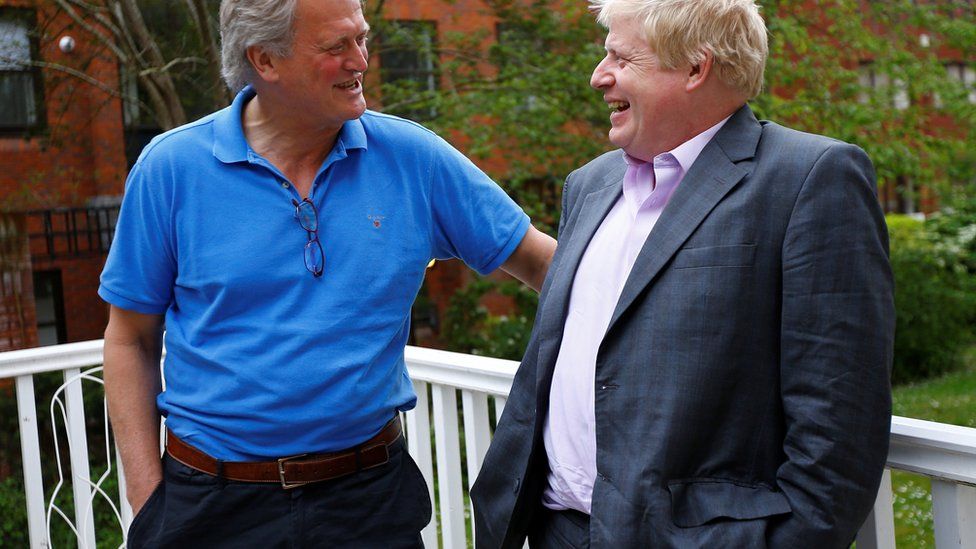Wetherspoon boss Martin says Brexit worry 'understandable'
- Published

Leading Brexit businessman Tim Martin, founder of the Wetherspoons pub chain, has said anxiety about leaving the European Union was "understandable".
But he told the BBC that there was no need to "rush into" EU exit talks.
On Saturday, EU leaders called for negotiations to start "as soon as possible" now that the UK has voted to leave the bloc.
"They are saying that because they are in a real panic; they have no cards to play," Mr Martin said.
He added: "Contrary to what some people think, we are in a much stronger position than the EU. We can afford to take our time."
The UK has a more prosperous economy with lower unemployment, and should wait until a new prime minister is chosen before entering talks, he said.
'Anxiety'
His comments come after another Leave supporter, JCB's chairman Lord Bamford, said the UK had "little to fear from leaving the EU".
The Wetherspoons chairman said "anxiety is understandable but it's a vote for democracy".
"Businesses never regret increased democracy because democracy and prosperity are inextricably linked," he told the BBC.
Shares in Wetherspoons dropped 8% on Friday as the FTSE 250 index, on which it is listed, suffered its biggest ever daily slide in the wake of the referendum result.
But Mr Martin said: "In 1987 there was a stock market slump by 27% and the economy boomed for the next couple of years.
"There's a good chance the economy will pick up following Brexit."
That will partly come from a cheaper pound, he said, after it touched 30-year lows against the dollar on Friday.
'Urgency'
Ruth Lea, economic adviser at the Arbuthnot Banking Group and a Leave supporter, said that despite the share falls, fears of another stock market crash did not materialise.
She told the BBC's Today programme that she also expected "trade to continue very much as it is today" with the EU, even after the UK leaves.
Talks will start when the prime minister triggers an EU clause called Article 50, a decision David Cameron left to his successor when he announced on Friday that he would step down.
Earlier, European Commission president Jean-Claude Juncker said a proposed delay in those talks "doesn't make sense".
German foreign minister Frank-Walter Steinmeier agreed that talks should begin "as soon as possible", while his French counterpart Jean-Marc Ayrault said there was "a certain urgency".
- Published24 June 2016
- Published25 June 2016
- Published24 June 2016
- Published19 April 2016